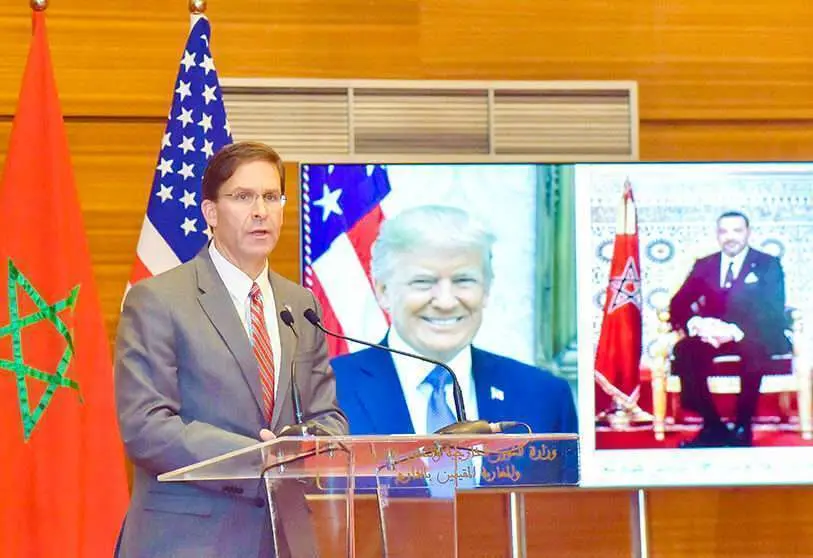Sahara and arms for Morocco

It was to be expected that the agreement between Donald Trump's administration and Morocco would have more elements that we will get to know in due course. We already have that Trump signed the recognition of Moroccan sovereignty over Western Sahara and that the United States will open a Consulate in Dakhla, joining Arab countries such as the United Arab Emirates, Bahrain and more than fifteen African governments that have decided to have diplomatic representation in that city of Western Sahara or in El Aaiún. This is a major operation by Moroccan diplomacy to secure support for its initiative for broad autonomy under its sovereignty in order to achieve a political solution to the dispute that has been dragging on for over 40 years. We also learned at the Trump tweet that Morocco and Israel were establishing full relations. But there are other aspects of the agreement that include Morocco's purchase of US weapons, drones and precision-guided ammunition worth $1 billion, the Trump Administration has informed Congress.
There will be other, not entirely loose ends that we will learn about in due course, but Trump's interested decision is going to give a major boost to the solution of the problem of Western Sahara. An institution such as the UN and important countries such as France and Spain, on the one hand, and Algeria and Russia, on the other, with the Polisario Front very much on the lookout, like the thousands of Saharawis who are keen to find a solution to put an end to their calamities in the Tindouf camps, are supposed to overcome the unpleasant impression of not having been consulted or having the slightest idea, apparently, of what had been negotiated for some 18 months.
According to what we have been able to read on Twitter from Atalayar's analyst, Santiago Mondéjar, the negotiations were based on the talks with the Moroccan government controlled by King Mohammed VI held by Avi Berkowitz, assistant to Jared Kushner, special representative of the US president for international negotiations and son-in-law of President Trump, facilitated by Yariv Elbaz, a Moroccan-Hebrew businessman in the food sector who is very close to the foreign minister, Nasser Bourita. An initiative that also originated in the environment of the Israeli Prime Minister, Benjamin Netanyahu, with Ram Ben Barak, former leader of the Mossad and partner of the businessman Elbaz. Jason Greenblat, a Jew of Hungarian origin well placed in the State Department and the CIA, also participated in this diplomatic-commercial kitchen. Both President Trump, who was keen to sign and announce the agreement to support what he points out as serious, credible and realistic Moroccan autonomy in the Sahara, and Mohammed VI failed to take into account, or did not take into account, the collateral damage caused to the High Level Meeting between Spain and Morocco, which was postponed until February owing to the threat of the coronavirus. Many things may now change in Western Sahara.

